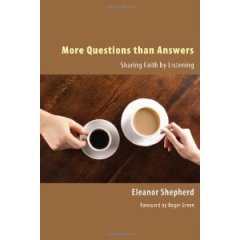I joined a writing group because my husband squealed on me. “Janet writes,” he told a new friend at church.
Well… I used to write little stories, until university papers killed them. By this point in my life I’d flitted near burnout in the workplace and found my purpose as an at-home mom to a toddler. Now there was a second child on the way, and the last thing on my mind was writing.
But our friend wanted to start a writing group, so I went along in support. We were a small gathering of published and wanna-bes, interested in poetry, articles and fiction. Eventually I started writing personal experience pieces, and one day the fiction drive kicked back in.
Public use of the Internet was just beginning. Our group learned about magazine markets by sending away for samples and writers’ guidelines. Compared to now with almost everything online, we were really isolated.
And it felt isolated, although we didn’t know what we were missing. Nova Scotia is home to a lot of writers, and the Writers’ Federation of NS has a large base of members. Some are Christians, but the only writers I knew, of faith or otherwise, were the handful in my group.
One night someone in our group brought a little newsletter called Exchange, put out by Audrey Dorsch. I recognized a good thing and subscribed. Exchange was discontinued a few years ago, but I owe Audrey a huge debt for the nuggets of information, market news and encouragement that she shared four times a year. She even published me once or twice in the later years.
One issue included a pamphlet about a group called Alberta Christian Writers’ Fellowship—Canada Wide. Wow! This body of Christian writers in Alberta were willing to accept members from as far away as Nova Scotia, and farther!
I joined.
 Before long, the organization changed its name to InScribe Christian Writers’ Fellowship. And fellowship is what meant the most to me. For the price of my membership I received a quarterly, magazine-length newsletter called FellowScript to teach and encourage me.
Before long, the organization changed its name to InScribe Christian Writers’ Fellowship. And fellowship is what meant the most to me. For the price of my membership I received a quarterly, magazine-length newsletter called FellowScript to teach and encourage me.
More than that, I stumbled into email and the Internet around that time, and connected with InScribe’s member listserv. Suddenly I could communicate with Christian writers from all across Canada.
The lights went on, colour flooded black-and-white, and I was connected.
InScribe was my writing lifeline for a long time. In 2000 I had the privilege of attending the Fall Conference in Edmonton and meeting some of my friends face to face.
I’ve entered InScribe contests over the years, even won a few, and learned from the judges’ comments. One year I gathered courage to apply for the Barnabas Fellowship (“enabling a member of InScribe to further his or her progress in writing”) and my name was chosen. The money let me take an online course on developing characters and gave a good kick-start to my second novel manuscript.
Along the way I’ve added memberships with The Word Guild, the Writers’ Federation of Nova Scotia and American Christian Fiction Writers, and my online “writing family” has expanded. But InScribe will always be special as my first connection with the wider writing world.
The InScribe listserv and FellowScript newsletter are well worth the price of membership. You can learn a lot more about InScribe and browse its members’ links at the InScribe website.
This month various Inscribers are posting some of their thoughts and stories about ICWF on their blogs. The tour kicked off on July 4 with a stop at ICWF President Jack Popjes’ blog, INsights & OUTbursts, and will wind up on July 27 at Janice Keats’ blog, The Master’s Path. I’ve had a great time following the tour and getting to know some of my fellow InScribers a bit better.
You can see the full tour schedule on the InScribe blog. The most recent post was at Violet Nesdoly’s Line Upon Line and the next one will be July 25th at Laureen Guenther’s Reenie’s Resources.
Leave a comment here and on the other blog tour posts to be entered in the grand prize draw: an InScribe book bag with a free annual membership and a copy of InScribed: 30 Years of Inspiring Writing. The more blogs you comment on, the more entries you’ll get in the draw—so if you comment on 10 blogs, you’ll get 10 entries in the draw (but one comment per blog, please). Contest is open only to non-InScribe-members (members are encouraged to comment but will not be entered in the draw).
Like this:
Like Loading...






